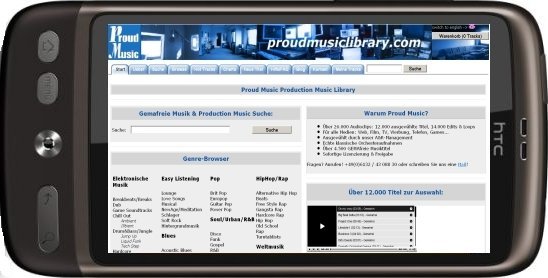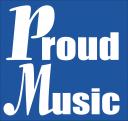As in the case of the American ASCAP or the Canadian SOCAN, a performance rights organization is responsible of administering and protecting the rights of all composers, performers, songwriters, lyricists, and music publishers from all walks of life. How do they do this? They do it by collecting licensing fees from people who want to perform the music of a particular artist publicly. In other words, the organization collects royalties on behalf of its members. The members of these organizations make a living by doing one or more of the aforementioned. Even though the main purpose is to collect licensing fees, these organizations may also offer workshops and health and instrument insurance.
What is the difference between an online advertising license and a standard license?
The standard license differs from an “Online Advertising” license in that it does not cover advertising use. The “Online Advertising” license is intended for this purpose, namely when it comes to combining a video with music and then uploading and publishing this video on online platforms such as Youtube, Vimeo or Facebook. Advertising is any measure taken to promote the sale of a product (good or service). For questions please send us an e-mail or simply call us at: +49 (0)6132 43 088 30.
On Pack Promotions
The term is understood as a series of promotional measures or actions on site that the potential buyer may extract from a product’s packing.
The German speaking world often uses the term “free gift promotion”, since the product enclose is considered added value. Most of the time, these promotions are self-adhesive, and may be presented in the form of coupons. There is a difference between product-specific and product-non specific on-pack promotions. Examples of non specific promotions are complementary products. In the music industry, we come across these products on a regular basis. One known example is redeemable coupons for downloadable songs from music portals, which are enclosed with bottled drinks. Depending on the client group, music lends itself as added value. For this purpose, it is possible to target certain groups with appropriate songs from popular artists, but the declaration of rights can be costly.
An alternative are compilations of music that are adequate to the use of the product according to its genre, such as relaxation music for hygiene products, or cool jazz for sophisticated consumer products. Our music library can be licensed for the physical distribution of such products (a circulation of CDs/DVDs or USB sticks will be affixed directly to the product). An interesting alternative is also downloads through promotional codes, such as those that may be redeemed through the product’s site. Just talk to us about an individual license!
How many music titles does the Proud Music Library include?
Every week, Proud Music Library adds 40 to 100 tracks to its collection. If you click on the search button under the menu tab, you can see how many we offer at this time. Through this search, you have access to all titles available, and may also verify the actual number of titles. Here, you may also obtain a general idea of which titles are licensed as completely royalty free music.
What license do I need for a trailer?
In order to enjoy a music title from the Proud Music Library for a trailer, you need an advertising license. Depending on which media you choose to advertise the trailer, there are online, radio, movie, and TV licenses. Each license type offers separate rights. Online advertising, for example on Yahoo!®, requires the issuance of an online advertising license; for TV advertising, for example on NBC, MTV or a local channel, requires a TV advertising license.
Music for Panoramic virtual tours by Virtual Surfers
Panoramic virtual tours are made with stitching software. They are meant to present a landmark, building, room, or object from all 360 degree angles. Used to advertise for example, hotels, houses, museums, and shops, they project views very similar to the way in which dancers twirl and travel across different spaces.
Panoramic photography is becoming more and more important in the business world. Do you wish to sell your house? Chances are that you will perceive more potential buyers if they have a better idea of the layout of the rooms and how they connect. One particular company that specializes on panoramic virtual tours is Virtual Surfers GmbH, with offices in Munich. Its Managing Directors, Stephan and Christina von Bressensdorf have been experimenting with this kind of photography since 2002, and we are happy to include them among our clients.
For a Panoramic virtual tours of the Lindner Hotels in Munich, they used the completely royalty free track “Piano Athmosphere” (C: Andres Lutz) from the Proud Music Library.
What is a trailer?
Who has not watched a movie preview (lasts between one and three minutes) before, and awoken his curiosity to run to the cinema’s premiere once it was released? How many TV spots (lasts less than a minute) of the latest video games have not lured fans to the store? How about those commercials advertising the newest car, event or dish on a restaurant menu? Whichever form it takes, or whatever its purpose, trailers or teasers are extracts from films, video games, or TV shows such as sitcoms and dramas, which are intended to promote the same.
What are composers?
Those are the people responsible for bringing music to life from its origins for our enjoyment. They create and experiment with compositions for the theater, television, radio, or film industries, among the various areas, some of which become masterpieces, such as John Williams’ score for the Star Wars films.
Nevertheless, a number of well-known appealing works need not be as lengthy or modern; they may be as simple and memorable as Alan Silvestri’s Forrest Gump’s theme Feather. A composer’s work is protected by copyright laws which state that the music is his property, unless he states otherwise in writing.
Viral videos: an example created by Serviceplan
This video is an example of a viral video created by the advertising agency Serviceplan in Munich (Germany) for Pattex, a well-known glue produced by Henkel AG Co. & KGaA. The theme, composed and produced by Frank Herrlinger, is called “Loops of Fun”. You can find this and many other titles in the Proud Music Library.
The above is an example of what we have come to know as a viral video. Although originally, the Internet was meant to be used as a scientific tool by the Pentagon and never as the source of communication as we know it (nethistory.info), it has become not only that, but also a vehicle for entertainment, information, and marketing, among other things. In the early to mid ‘90s, viral videos were those people sent as examples of bloopers or funny animations set to known songs like that of B.J. Thomas’ “Hooked on a Feeling” in “Dancing Baby” (also featured in Ally McBeal), and their length was between 19 and 25 seconds long. Nowadays, many product and artist promotions are done through the creation of videos and are easily accessible to anyone through pages such as YouTube. One instant success that comes to mind is Susan Boyle’s appearance on Britain’s Got Talent in 2009 through the promotion of her video on that site. The Pattex advertisement video is clearly another example of the innumerable possibilities that the World Wide Web represents.
Ten film jest przykładem wideo stworzonego przez agencjÄ� reklamowÄ� Serviceplan w Monachium (Niemcy) dla Pattex, znanego kleju produkowanego przez Henkel AG Co. & KGaA. Temat, skomponowany i wyprodukowany przez Frank Herrlinger, nosi nazwÄ� “Loops of Fun”. Ten i wiele innych tytułów można znaleźÄ� w Proud Music Library.
What is Royalty free music?
Is it free music?
The definition of royalty free music denotes a onetime licensing fee. This form of licensing differs from the traditional one in that earlier, licensing was paid for every minute, second and moment of use of a particular work of music. But the term can be misleading. Royalty free does not mean that broadcasting time, for example, is completely free.

It helps you achieve your goal
Networks and radio stations pay for a license that allows them to broadcast that music at particular times and at particular moments. They are required to keep track of the number of broadcasts on a cue sheet so that music broadcast can be recorded properly and then, royalties are distributed accordingly to the musicians, composers, and music publishers. In other words, royalty free music means that you pay in this case a onetime licensing fee, but to use in your own productions regardless of how often you use it. Still, in this manner, royalty free music is made more accessible to the common public. Whether you are a teacher in a classroom who would like to make presentations more dynamic, a student working on a project, a friend working on a special present, or if you are trying to find the right way to propose by creating the appropriate mood, royalty free music helps you achieve your goal.
It is not free music
Royalty-free means not that the piece of music is free to use. The most royalty-free music tracks are registered with a domestic or foreign collecting society. This means that the use of a piece of music must be reported with a registration form (=cue sheet) to the local collecting society, e.g. ASCAP.
When using royalty-free music in commercials or advertisements, although the use of the license price is often limited but already clarified, so that there will be no complicated negotiations with rights holders muß (pre-cleared music). That’s why this is called rather Production Music. or Stock Music. But Stock Music is often music where the composer is not registered with any domestic or foreign collecting society. In the Proud Music Library you find this music under the label “completely royalty-free music”.
